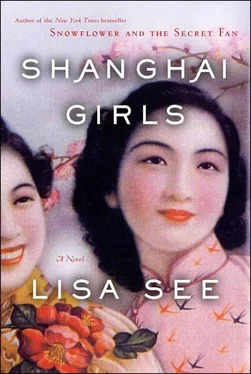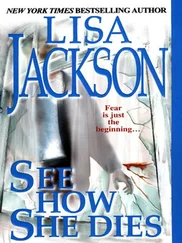Each oriole is attached by a hook and separate string to the main line. May picks up the lead oriole and lifts it into the air. With the soldiers’ assistance, I add a new oriole and its string to the main line. One oriole after the other takes off, until pretty soon a flock of twelve orioles swoosh, swoop, and dip in the sky. They look so free up there. May’s hair flies in the breeze. Her hand shields her eyes as she gazes into the sky. Light glints off Z.G.’s glasses, and he grins. He motions me to him and hands me the control of the kites. The orioles are made from paper and balsa, but the pull of the wind and the sky is strong. Z.G. moves behind me and puts his hands over mine to steady the control. His thighs lie against mine and my back against his torso. I breathe in the sensation of being so close to him. Surely he has to be aware of what I feel for him. Even with him there to hold me, the pull from the kite is so powerful that I think I might be lifted up to fly away with the orioles into the clouds and beyond.
Mama used to tell us a story about a cicada sitting high in a tree. It chirps and drinks in dew, oblivious to the praying mantis behind it. The mantis arches up its front leg to stab the cicada, but it doesn’t know an oriole perches behind it. The bird stretches out its neck to snap up the mantis for a midday meal, but it’s unaware of the boy who’s come into the garden with a net. Three creatures-the cicada, the mantis, and the oriole-all coveted gains without being aware of the greater and inescapable danger that was coming.
Later that afternoon, the first shots are exchanged between Chinese and Japanese soldiers.
THE NEXT MORNING, August 14, we wake late to the sounds of movement, people, and animals outside our walls. We draw back the curtain and see streams of people passing the house. Are we curious about them? Not at all, because our minds are on how to get the most out of the one dollar we have to spend during the shopping expedition we’re planning. This isn’t some shallow thing. As beautiful girls, we require fashionable ensembles. May and I have done what we can to mix and match the Western outfits Old Man Louie left behind, but we need to keep current. We aren’t thinking about the new fall fashions, because the artists we work for are already creating calendars and advertisements for next spring. How will Western designers modify the dress in the new year? Will a button be added to a cuff, the hem shortened, the neckline lowered, the waist nipped? We decide to go to Nanking Road to look in the windows and try to imagine what the changes will be. Then we’ll stop by the notions department in the towering Wing On Department Store to buy ribbons, lace, and other trim to freshen our clothes.
May puts on a dress with a pattern of white plum blossoms against a robin’s egg blue background. I wear loose white linen trousers and a navy blue short-sleeved top. Then we pass the morning looking through what’s left in our closet. It’s in May’s nature to spend hours at her toilette, choosing the right scarf to tie at her throat or purse to match her shoes, so she tells me what we should look for and I write it down.
It’s late afternoon when we pin on hats and pick up our parasols to protect us from the summer sun. August, as I’ve said, is miserably hot and humid in Shanghai, the sky white and oppressive with heat and clouds. This day, however, is hot but clear. It might have even passed for pleasant if not for the thousands of people who crowd the streets. They carry baskets, chickens, clothes, food, and ancestor tablets. Grandmothers and mothers with bound feet are supported by sons and husbands. Brothers lug poles across their shoulders coolie-style. In the baskets at the ends are their little brothers and sisters. Wheelbarrows transport the aged, sick, and deformed. Those who can afford it have paid coolies to bear their suitcases, trunks, and boxes, but most of the people are poor and from the country. May and I are happy to get in a rickshaw and separate ourselves from them.
“Who are they?” May asks.
I have to think about it. That’s how disconnected I am from what’s happening around me. I mull over a word I’ve never before spoken aloud.
“They’re refugees.”
May frowns as she takes that in.
If I make this sound like this sudden turbulence has come out of nowhere, that’s because it has for us. May doesn’t pay much attention to the world, but I know a few things. Back in 1931, when I was fifteen, the dwarf bandits invaded Manchuria in the far north and installed a puppet government. Four months later, at the beginning of the new year, they crossed into the Chapei district across Soochow Creek right next to Hongkew, where we live. At first we thought it was fireworks. Baba took me to the end of North Szechuan Road, and we saw the truth. It was horrible to see the bombs exploding and worse still to see Shanghailanders in their evening clothes, drinking liquor from flasks, nibbling on sandwiches, smoking cigarettes, and laughing at the spectacle. With no help from the foreigners, who got rich off our city, the Chinese Nineteenth Route Army fought back. Japan didn’t agree to a cease-fire for another eleven weeks. Chapei was rebuilt, and we let the incident go out of our minds.
Then last month shots were fired on the Marco Polo Bridge in the capital. The official war began, but no one thought the dwarf bandits would come this far south so fast. Let them take Hopei, Shantung, Shansi, and a bit of Honan, the thinking went. The monkey people would need time to digest all that territory. Only after establishing control and snuffing out uprisings would they consider marching southward into the Yangtze delta. The sorry people who would live under foreign rule would be wang k’uo nu- lost-country slaves. We don’t grasp that the trail of refugees crossing the Garden Bridge with us extends for ten miles into the countryside. There is so much we don’t know.
We view the world very much as peasants in the countryside have for millennia. They’ve always said the mountains are high and the emperor is far away, meaning palace intrigues and imperial threats have no impact on their lives. They’ve acted as though they could do whatever they wanted without fear of retribution or consequence. In Shanghai, we also assume that what happens elsewhere in China will never touch us. After all, the rest of the country is big and backward, and we live in a treaty port governed by foreigners, so technically we aren’t even part of China. Besides, we believe, truly believe, that even if the Japanese reach Shanghai, our army will beat them back as they did five years ago. But Generalissimo Chiang Kai-shek has a different idea. He wants the fight with the Japanese to come to the delta, where he can arouse national pride and resistance, and at the same time consolidate feelings against the Communists, who have been talking about civil war.
Of course, we have no inkling of that as we cross the Garden Bridge and enter the International Settlement. The refugees drop their loads, lie on sidewalks, sit on the steps of the big banks, and crowd onto the wharves. Sightseers gather in clusters to watch our planes try to drop bombs on the Japanese flagship, the Idzumo , and the destroyers, mine sweepers, and cruisers that surround it. Foreign businessmen and shoppers determinedly step around what’s at their feet and ignore what’s happening in the air, as though things like this go on every day. The mood is at once desperate, festive, and indifferent. If anything, the bombings are an entertainment, because again the International Settlement-as a British port-isn’t under any threat from the Japanese.
Our puller stops at the corner of Nanking Road. We pay the agreed-upon price and join the throng. Each plane that sweeps overhead brings whoops of encouragement and applause, but when every single bomb misses its target and falls harmlessly into the Whangpoo, cheers turn to boos. Somehow it all seems a funny game and eventually a dull one.
Читать дальше












